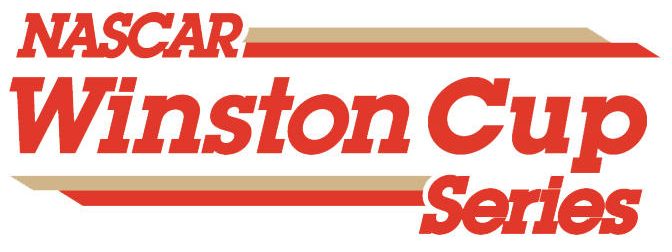After 36 Years, NASCAR Drops Grand National
In the late autumn of 1985, NASCAR's Bill France Jr. announced that the name Grand National would no longer be associated with the the world's leading Stock car racing series. "The Winston Cup series has reached the pinnacle in motorsports," France Jr. said in a prepared statement. "Fans throughout the world have come to recognize the Winston Cup name as the number one name. Prior to our association with Winston, the Grand National name symbolized the best in NASCAR. We feel our friends at Winston deserve a name all their own. Winston's efforts have been most significant in the progress of NASCAR and NASCAR sanctioned tracks over the past 15 years.
Using the Winston Cup name to identify both the drivers and cars in NASCAR's top division is simply formalizing what is basically already being done. We're just making it official."
Most of the media representatives who regularly covered the NASCAR circuit, had been using Winston Cup when referring to the drivers and cars of NASCAR's premier series. Their editorial guidelines allowed them such freedom. However, most of the daily newspaper editors -- from the Southeast to the Midwest -- always had the luxury of falling back on the Grand National name. Many newspapers, radio stations and television sports directors had strict limitations as to how much free advertising they were allowed to give to such corporate sponsors. Many sports editors were informed by their executives not to use any sponsor names when penning stories about Stock car racing events.
NASCAR, France Jr. and the R.J. Reynolds people were aware that things in the print and electronic media might remain status quo. Most would continue to use the name Grand National when reporting happenings on the Stock car racing front. So, in an effort to deter the media from continuing to use Grand National, NASCAR shifted the title over to the Sportsman ranks. It would now become known as the Busch Grand National Series.
Traditions Broken
The Sportsman title had a deep tradition of its own. Back in 1950, Alvin Hawkins, promoter of the Bowman-Gray Stadium in Winston-Salem, N.C., was trying to orchestrate a new racing division at his quarter-mile track. The Grand Nationals and the NASCAR Modified ranks required a fair amount of money in which to compete. Hawkins felt that a low cost division -- one that could be affordable to novices who simply wanted to race -- would be ideal as a form of minor leagues. Prize money would be minimal, Hawkins said.
Hawkins was unsure how receptive his ideas would be. He didn't bother coming up with a name for the new division. It might never get off the ground.
However, dozens and dozens of cars and drivers showed up for the first race. Hawkins, standing pitside, was amazed at the number of cars which turned out for the first race. Lined up on the starting grid, they stretched nearly half way around the track. "Would you look at that," Hawkins said to a person standing at his side. "Can you believe how many of them are out there? Those guys are sure sportsmen, because there is no prize money to speak of."
The new division just had its title -- Sportsmen. Later, it would become the Late Model Sportsman division. For 1986 however, the name Grand National would be handed down to the Double A league. And that created some problems within the media instead of solving them.
Gene Granger, noted stock car racing historian and columnist, said, "There wasn't a thing broke, but NASCAR decided to fix it anyhow."
Frank Vehorn, award winning motorsports journalist for the Norfolk Virginian-Pilot (Va.), offered his unabashed opinion of the name change. "In recent years, several daily newspapers in the Carolinas have significantly reduced coverage of Stock car racing," said Vehorn. "Only the Charlotte Observer does a major league job of covering the sport full time.
"Stock car racing has done a very poor job of selling itself and polishing its image," continued Vehorn. "In some quarters, it is regarded more as an advertising billboard than a sport. We're talking overkill commercialism. Other sports do not attempt to force this commercialism on the media as does the Winston Cup (now Grand National) circuit.
Until NASCAR does a better job of improving credibility and does a better job of selling its sport instead of beer and cigarettes, it will continue to be ignored by most of the national media."
C.J. Baker, Publisher and Editor of Circle Track Magazine, said, "From a media standpoint, these name changes have two serious drawbacks. First, they will result in confusion among hundreds of thousands of Stock car racing fans, especially when pre-'86 references to cars and drivers are made. And second, the change smacks of excessive commercialization which may be detrimental to the sport in the long run," said Baker.
The immediate reaction among many facets of the media was rejection. CBS Sports used the term "NASCAR Stock Car" when referring to the Winston Cup Series. ABC-Sports continued to call it the "Grand National Circuit."
The Winston-Salem (N.C.) Journal, serving R.J. Reynolds' hometown, referred to the Winston Cup Series as the Grand National tour and also used the Sportsman title when referring to the new Busch Grand National Series.
The Charlotte Observer, with fewer restraints, freely wrote about the Winston Cup Series but called the Busch Series the Sportsman division.
It would take a few years for Winston Cup and Busch Grand National to become readily acceptable to most of the media in the South. It will take a lot longer for the entire country to budge. "That's why all of the NASCAR races, save the Daytona 500, are still listed in agate (small print) in Sports Illustrated," said Vehorn.


